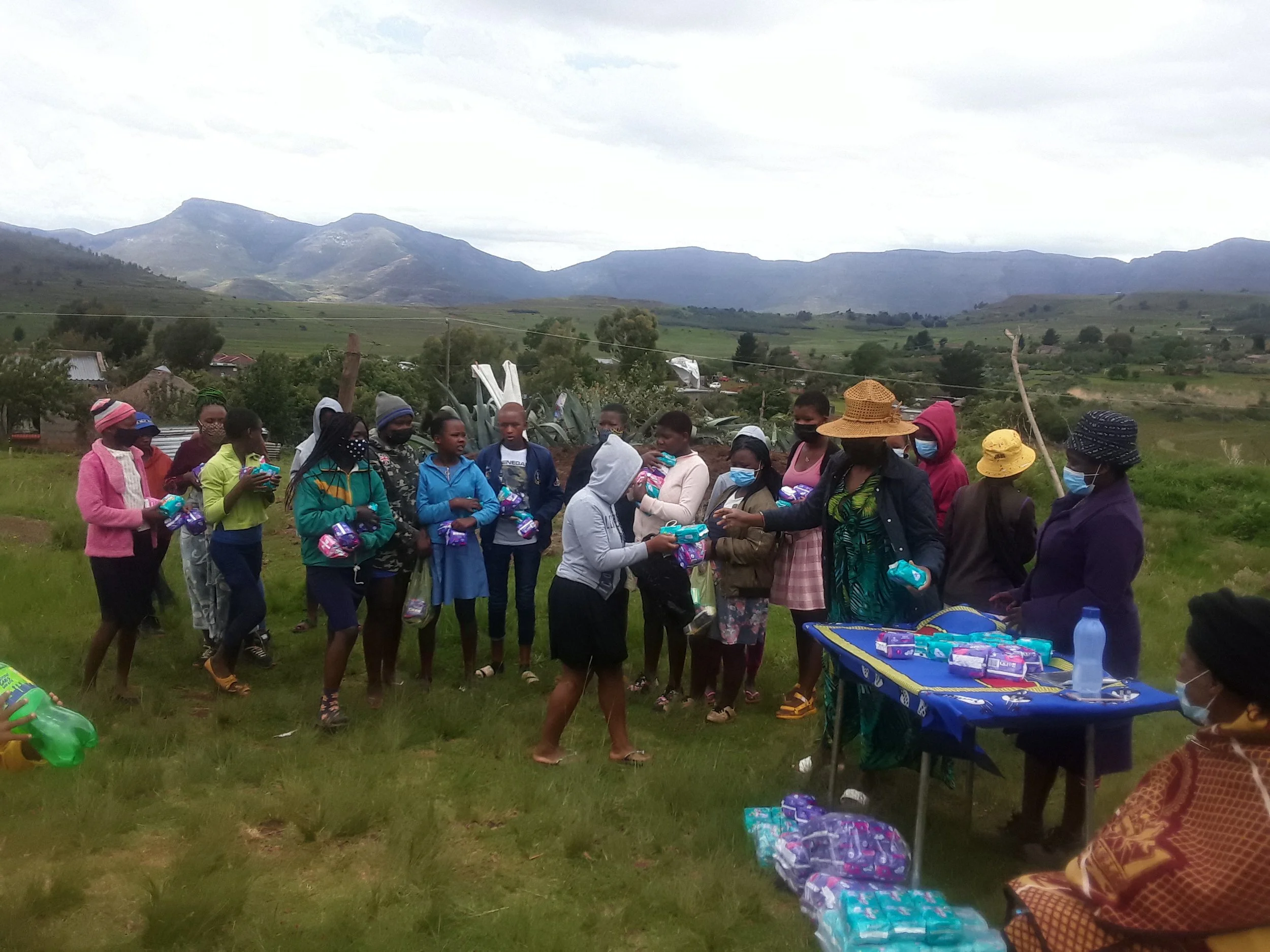THE LEADERS OF TOMORROW
ATHENA & TELEMACHUS ALUMNI
MANTOLO MAPHELEBA
Born and raised in Lesotho, Mantolo gained a BA in Social Work at the National University of Lesotho. Growing up in a rural area, she knows first-hand about the challenges of poverty on young people. Through a foodbank Machache, Mantolo volunteers to her community. She also volunteers at the administrative office of the Commonwealth Businesswoman’s Network Lesotho chapter, encouraging and embedding women in leadership and she is part of the committee planning the first Commonwealth Africa Summit in March 2022 in Kenya.
“Being Unable to Look After Myself and My Daughter Is the Hardest Thing I Have Had to Deal With”
Q: Tell us a few things about your country, and also your life's story!
I grew up in the Mountain Kingdom, a small beautiful landlocked country within South Africa. Lesotho, or the "Namaqualand of Africa" as it has been labeled has a population of just over 2 million people. Although it is endowed with natural resources such as water, diamonds, etc, it is also one of the poorest countries in Africa.
I grew up in a beautiful village in the outskirt of the Maseru, the capital city of Lesotho. The oldest of two girls, I was always a dreamer and a believer in my dreams. Life was hard and resources were hard to come by, but I was fortunate enough to be enrolled in a government scholarship programme that saw me in high school, where I was performing really well. Upon graduation from high school, I got a bursary and graduated with a Bachelor degree in Social Work from the National University of Lesotho in 2016.
Q: How did you experience the global pandemic crisis, did it change your life or/and your views about the world? How?
As a result of the pandemic, I, unfortunately, lost my job in South Africa and had to come back home to Lesotho. Starting over was not easy, with high unemployment rates and more people continuing to lose jobs, I knew it would be a while before things would get better. I began volunteering my time and skills in community development organizations where I met some really amazing women and gained new skills as well. The pandemic definitely changed my views about the world as it became apparent that the world was changing and all one could do was adapt. I began to realize just how connected and fragile human beings really are, we were all hit in different ways, but the lesson was one, we needed each other and we needed to move as a global unit to make it out alive.
Q: What are some of the key challenges in your society currently?
Poverty remains a major challenge in Lesotho. High unemployment has also seen the youth and women of my country suffer the most and as a result, there have been more suicide incidents, crime and GBV.
Q: Share with us some of the hurdles that you had to overcome in your life so far? How did you handle them?
Being unable to look after myself and my daughter is the hardest thing I have had to deal with. Imagine a social worker who cannot help herself. I have been blessed with a strong supportive structure and being of service through my volunteerism saved me from depression. Service is fabulous because instead of focusing on your own problems, you try better someone else's situation which in turn betters yours.
Q: If you were to ask one thing from our current leaders, what would it be?
To review policies and actually implement them. Good strategies cannot just be on paper without there being any real efforts to implement them.
Q: Why is the role of a mentor important for you?
Because it has pushed me to do better, to do more. My mentor has opened my eyes to so many possibilities and every day I am thinking of ways to better myself and make an impact.
Q: Do you have a lesson that life has taught you and you would like to share?
Life has taught me that no one owes me anything, the world doesn't owe me anything. Anything I want, if I want it bad enough, I have to make it happen.
Q: Name a project, a foundation or a person in your country that you think is doing great work in helping improve other people's lives!
Lerato Mphaka is a young Mosotho woman who owns a girl's coding academy. The very first in Lesotho. I think the work she is doing is inspirational, molding and preparing young people to be ready for the future.
Q: What are some of the challenges that women in your country face and what efforts are made towards gender equality?
Gender-based violence remains a major issue in Lesotho. The government of Lesotho has put some laws in place to protect women from some past practices that impeded on the rights of women to decide on their own fate. For example, women no longer need a man's permission to own land, inheritances, access loans, etc.
Q: Share with us a phrase, a poem or a story that means something to you.
The story of Maya Angelou. A black woman, abused, gave herself to drugs, prostitution but who in the end remembered herself, picked herself up and became her own hero.
Q: Share with us a project that you would like to make happen for your country or a cause that you are passionate about.
I would love to empower rural girls and boys with computer skills. Give them a starting point. Many of the children in rural Lesotho will never see or even use a computer until they go to university. That is if they make it to university.


